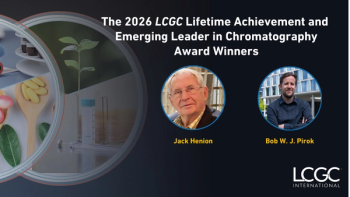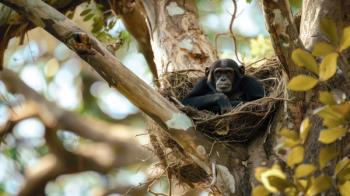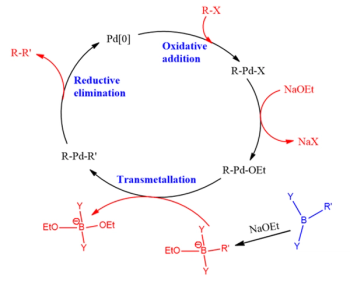
LCGC Announces the 2023 Winners of the Lifetime Achievement and Emerging Leader in Chromatography Awards
LCGC, the leading resource for separation scientists, is proud to announce that Peter J. Schoenmakers and Emanuela Gionfriddo are the winners of the 16th annual LCGC Lifetime Achievement and Emerging Leader in Chromatography Awards, respectively. Schoenmakers and Gionfriddo will be honored in a symposium as part of the technical program at the Pittcon 2023 conference in March 2023.
LCGC, the leading resource for separation scientists, is proud to announce that Peter J. Schoenmakers and Emanuela Gionfriddo are the winners of the 16th annual LCGC Lifetime Achievement and Emerging Leader in Chromatography Awards, respectively. Schoenmakers and Gionfriddo will be honored in a symposium as part of the technical program at the Pittcon 2023 conference in March 2023.
The Lifetime Achievement Award
The Lifetime Achievement in Chromatography Award honors an outstanding professional for a lifetime of contributions to the advancement of chromatographic techniques and applications.
Schoenmakers, the 2023 winner, is a professor of Analytical Chemistry and a former Scientific Director of the van ’t Hoff Institute for Molecular Science at the University of Amsterdam. He is best known for his work in liquid chromatography, starting with the theory of gradient elution in reversed-phase chromatography and its optimization and continuing through his many contributions to the analysis of polymers and his pioneering work in developing two- and three-dimensional LC methods, particularly of polymers.
His earliest work focused on a general theory of gradient elution LC. His 1978 paper, “
Schoenmakers is unquestionably one of a small group of pre-eminent contributors to the development of two-dimensional LC (2D-LC). He has contributed extensively to areas such as the optimization of 2D-LC including his innovative work on Pareto optimization, three-dimensional LC (3D-LC) separations, the theory of resolution in 2D separations, and a quite novel method for determining the fractional coverage. Additionally, Schoenmakers has done seminal work on ways to minimize sample dilution.
Schoenmakers also has contributed significantly to the area of polymer characterization. Initially he focused on size-exclusion chromatography (SEC) and reversed-phase liquid chromatography (RPLC) of homo polymers and co-polymers. He also studied “LC at the critical-composition” of polymers. He explored the use of multiple types of detectors, such as optical absorbance, multi-angle light scattering, and Fourier transform infrared detectors. His more recent work in polymer analysis has been his development and use of 2D-LC and 3D-LC. He is truly a pioneer in this field.
Schoenmakers is the author of more than 300 publications and has given more than 300 talks—which he presents with a humorous and engaging speaking style—and many hundreds of posters.
Over his career, Schoenmakers has received numerous awards. Highlights include the Silver Jubilee medal of the Chromatographic Society (1989); the Venema Award for Industrial Separation Science (1994); the Eastern Analytical Award for Excellence in Separation Science (2010); the Martin medal of the Chromatographic Society (2011); the . John H. Knox Medal of the Royal Society of Chemistry (2014); the Csaba Horváth Memorial Award (2015); the CASS Award for Distinguished Contributions to Separation Science (2015); a European Research Council (ERC) Advanced Grant for Excellent Research (2016); the Fritz-Pregl Medal (2018), the Dal Nogare Award from the Chromatography Forum of the Delaware Valley (2019); and the American Chemical Society (ACS) Award in Chromatography (2022).
In June 2022 Schoenmakers received a royal commendation as a “Knight of the Order of the Netherlands Lion,” one of the oldest and highest civil honors in the Netherlands.
The Emerging Leader Award
The Emerging Leader in Chromatography Award recognizes the achievements and aspirations of a talented young separation scientist who has made strides early in his or her career toward the advancement of chromatographic techniques and applications.
Gionfriddo, the 2023 winner, received her PhD in chemistry in 2013 at the University of Calabria, in Italy. Following work as a postdoctoral fellow and research associate at the University of Waterloo, in Canada, in 2018 she became an assistant professor of chemistry at the University of Toledo, in Ohio, where she is the founding member of the Dr. Nina McClelland Laboratory for Water Chemistry and Environmental Analysis.
Gionfriddo’s contributions to separation science involve the implementation of alternative, green microseparation methodologies for extraction of small molecules from challenging biological and environmental samples. Her research focus has important implications for environmental monitoring of contaminants, exposomics studies in biological samples and living organisms, and targeted and untargeted metabolomics. Of particular relevance is her contribution in developing and testing biocompatible extraction phases for microextraction that have enabled the extraction of a broad range of molecules in complex media.
One example of her
In another
To date, Gionfriddo has more than 50 publications, including three book chapters, as well as one patent. She has given 60 oral and poster presentations. She has received several awards, including a 2022National Science Foundation CAREER Award, the 2022 Satinder Ahuja Award for Young Investigators in Separation Science from the American Chemical Society’s Analytical Chemistry Division, the 2022 University of Toledo President's Award for Excellence in Creative and Scholarly Activities, the UTC Excellence in Sample Prep Award at the North American Chemical Residue Workshop (NACRW) in 2018, the Young Author Prize at the International Symposium on Advances in Extraction Technologies (ExTech2018), and best poster awards at the Extech 2018, 2017, and 2016 conferences.
She is currently serves on the University of Toledo Water Task Force and on the Scientific Council of Advisors for the State of Ohio’s Attorney General’s Office. She is a member of the editorial board of several journals and is currently the Secretary of the Analytical Chemistry Subdivision on Chromatography and Separation Chemistry of the American Chemical Society.
Visit the LCGC website for information about
Newsletter
Join the global community of analytical scientists who trust LCGC for insights on the latest techniques, trends, and expert solutions in chromatography.




